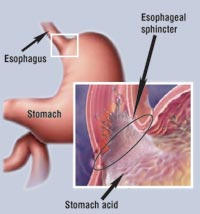
Guarding against GastritisGastritis is a common condition today, affecting those of all ages, and often causing intense pain and discomfort. While there are many factors that cause gastritis, it can usually be treated by a simple combination of drugs and changes in diet, explains Dr. Harsha Baranage, General Practitioner and Resident Medical Officer at Asiri Surgical Hospitals, as he discusses the various aspects of the disease in this interview with MediScene.
What is Gastritis? Gastritis is the irritation of the stomach lining, which in turn causes the inflammation of the superficial layers of the stomach. If it persists over a long period of time, the deeper layers of the stomach may also get involved. There are two primary causes of gastritis:
Apart from this, there are also several associated factors that are believed to cause gastritis. These include, smoking, high consumption of spicy foods, long periods of hunger, stress and excessive consumption of alcohol. Some people may also have a condition of hyperacidity in the stomach, where the acid secretions are higher than usual, making them more prone to gastritis. The main symptom of gastritis is abdominal discomfort and epigastric pain (a sharp, intermittent pain in the upper-mid abdomen). In rare cases, the pain may be centred towards the left or right, and is sometimes mistaken for heart conditions such as angina.
Other symptoms may include nausea, chest pain, headache, bloating and distention of the abdomen. In severe cases vomiting and altered stools may occur. Left untreated, gastritis can lead to stomach ulcers. Ulcers lead to bleeding and perforation in the stomach lining, as well as penetration (the inflammation spreading to other organs such as the pancreas). In certain cases it may also cause gastric/stomach cancer. Doctors are usually able to diagnose gastritis from the symptoms, and to initiate treatment. There are also some tests that may be necessary, if the symptoms persist.
Prevention and self-care
In addition avoid foods that are spicy, acidic, fried or fatty - this is particularly important if ulcers are present. There is a myth that a glass of milk or cup of yoghurt helps reduce gastritis symptoms - whereas milk may actually increase the acidity in the stomach. It is better to drink plenty of water. The regular consumption of fast food such as pastries, buns, pizzas, etc. may also aggravate gastritis. These contain sodium and calcium propionate, which, over a period of time, can damage the stomach lining.
Those who have already been diagnosed with gastritis or gastric or duodenal ulcers should take alternate pain relievers such as paracetamol or tramadol.
|
|| Front
Page | News | Editorial | Columns | Sports | Plus | Financial
Times | International | Mirror | TV
Times | Funday
Times | Medi Scene || |
| |
Reproduction of articles permitted when used without any alterations to contents and the source. |
© Copyright
2007 Wijeya
Newspapers Ltd.Colombo. Sri Lanka. All Rights Reserved. |

